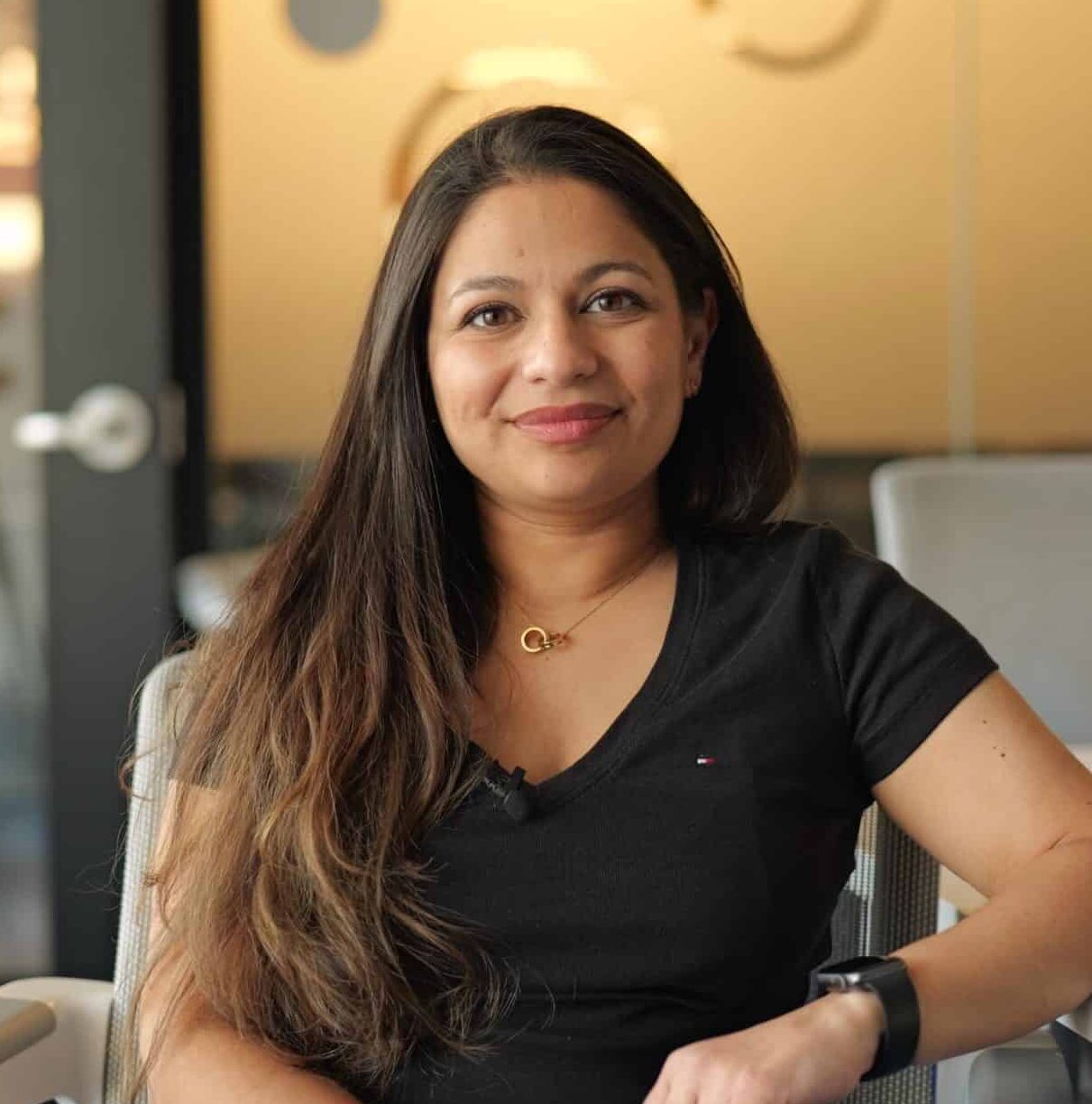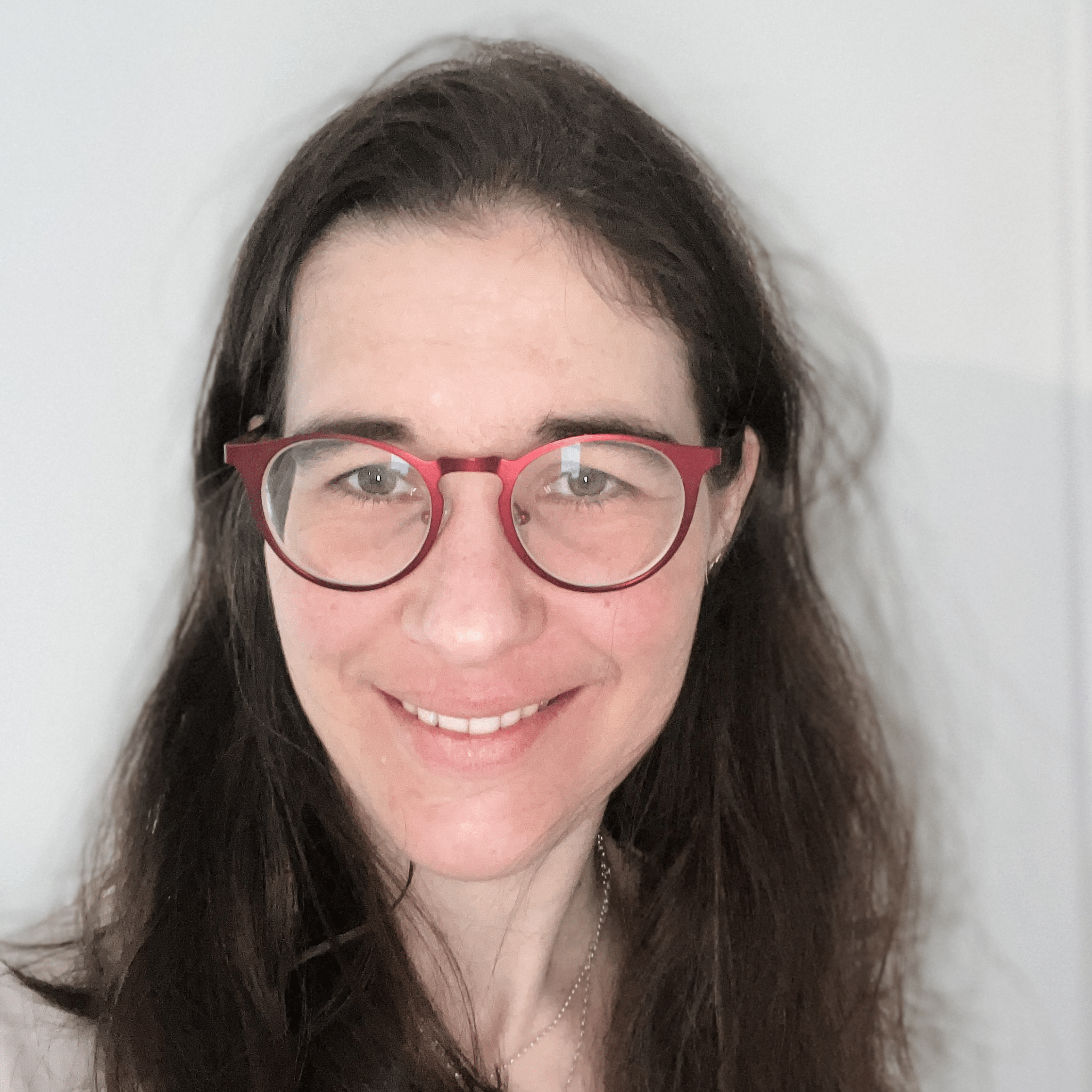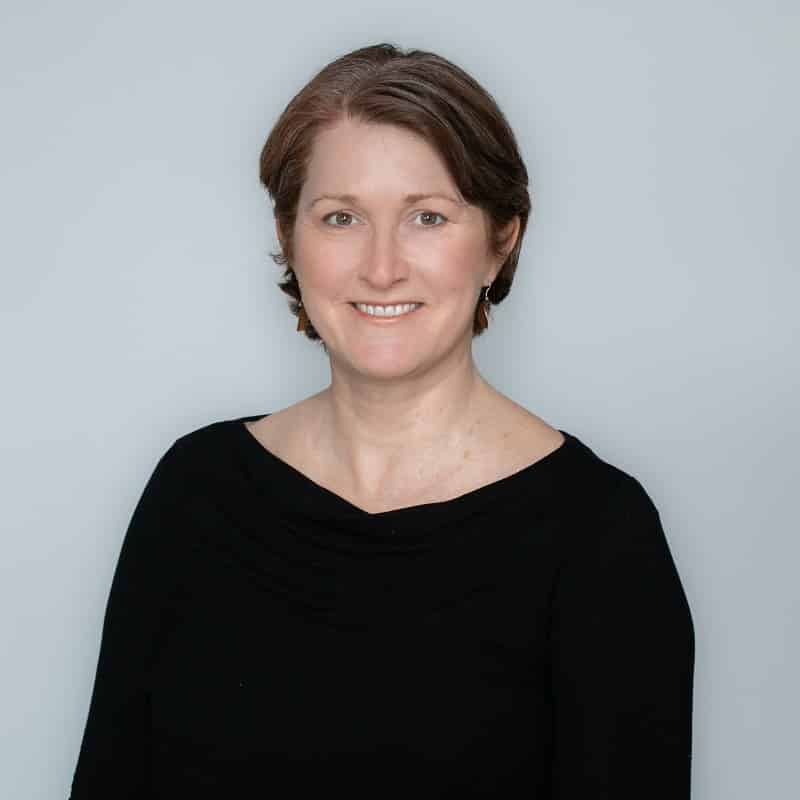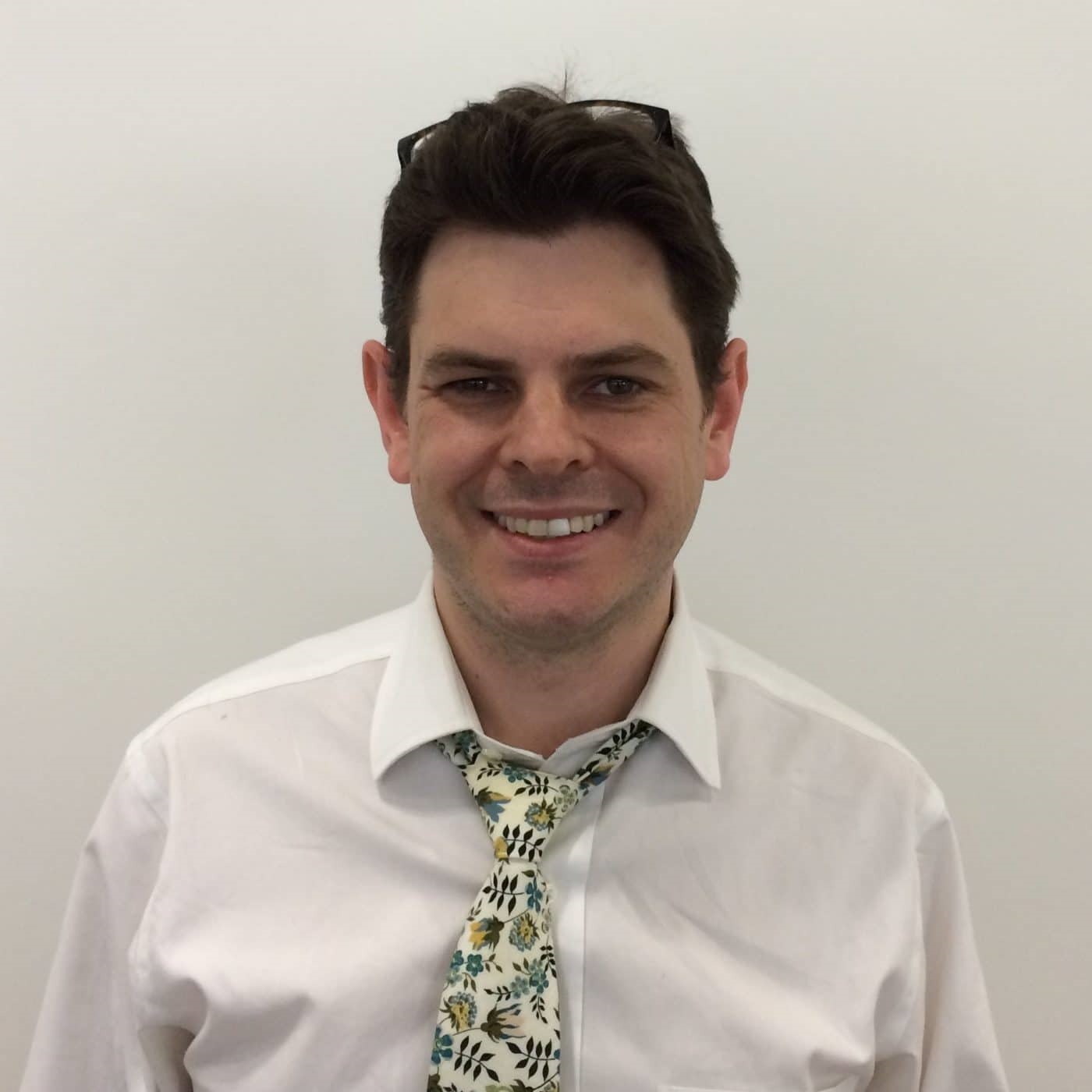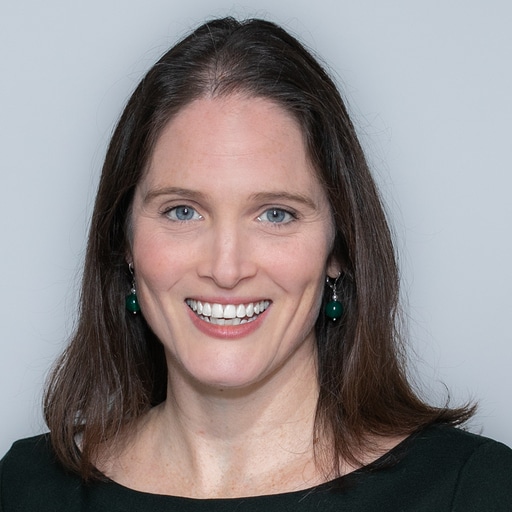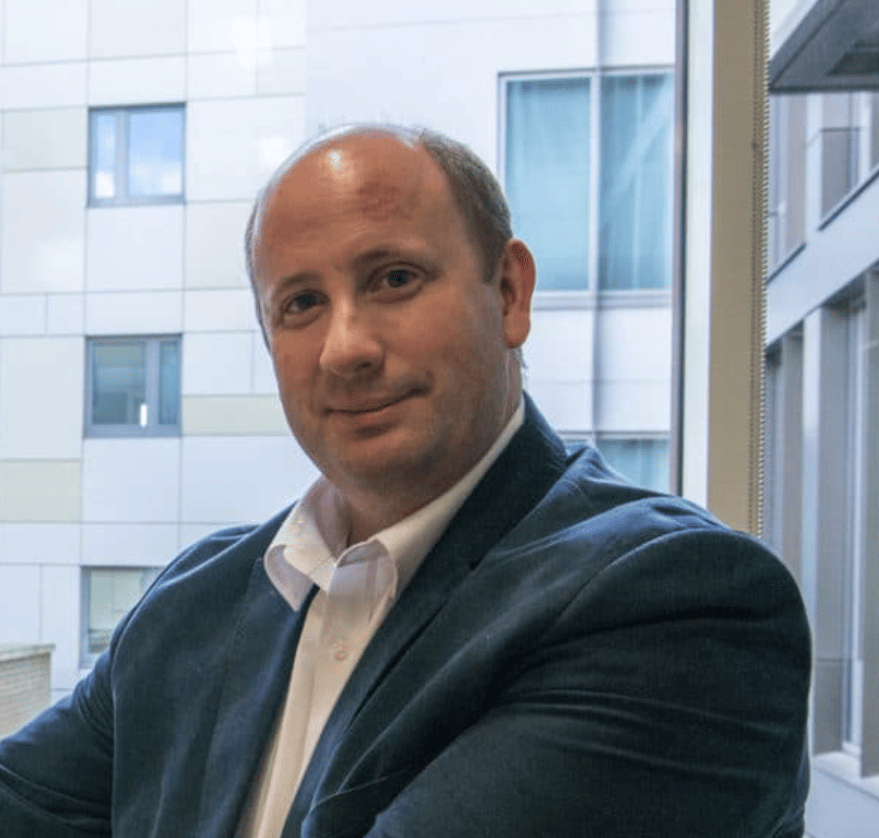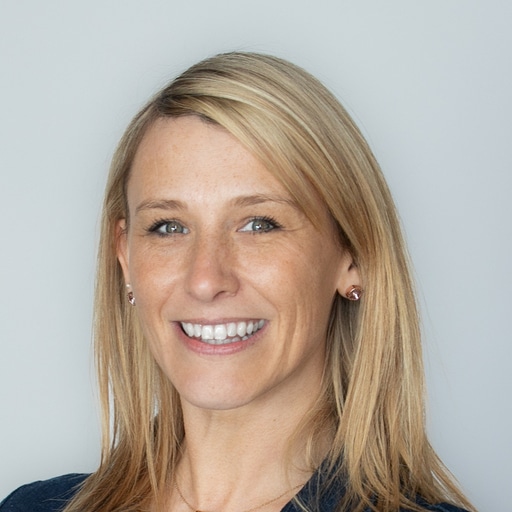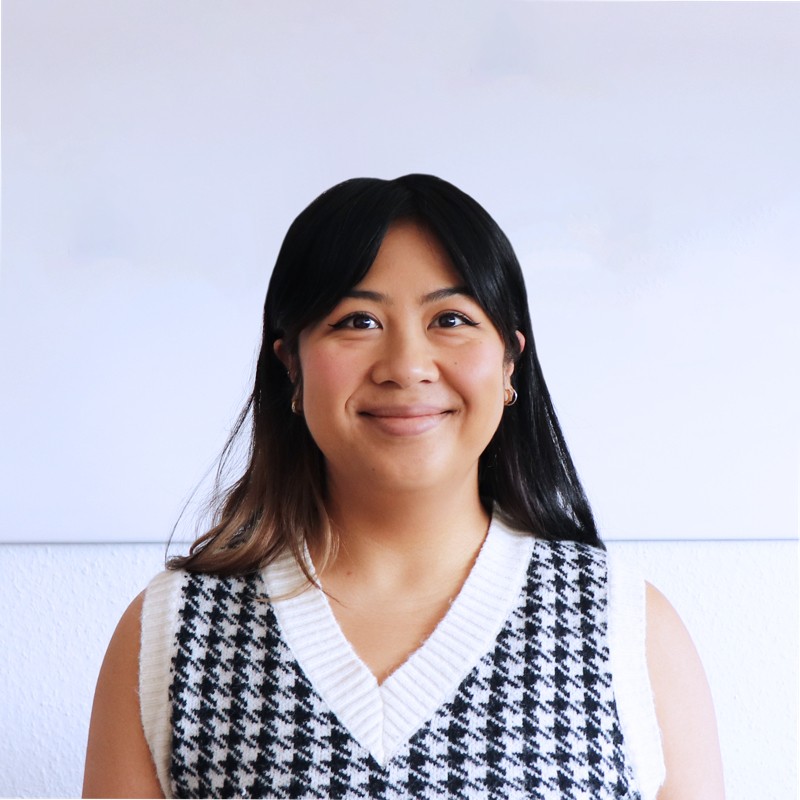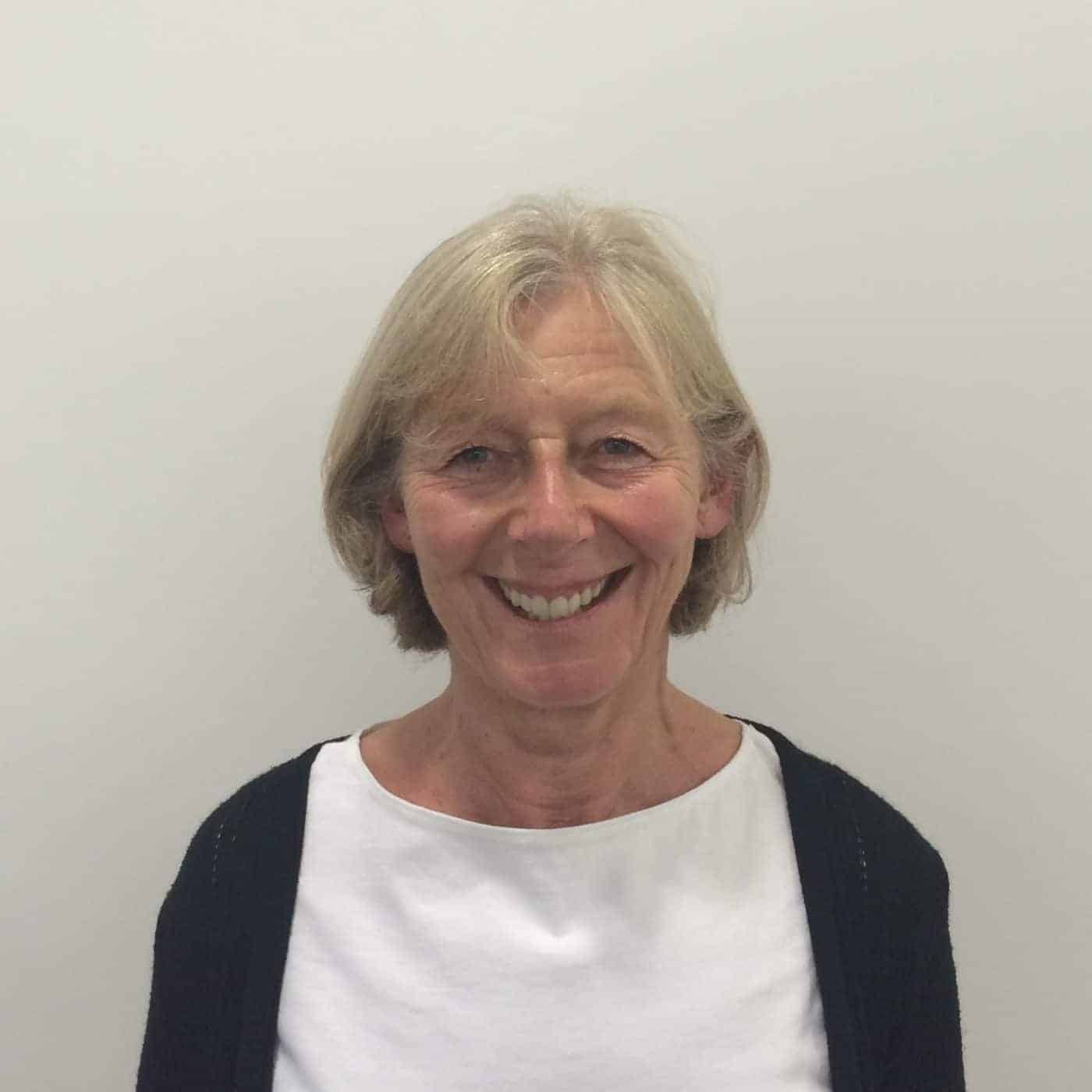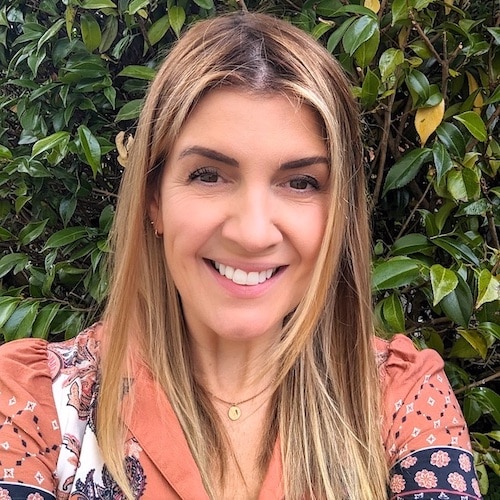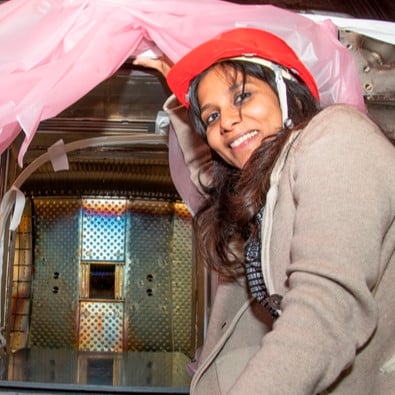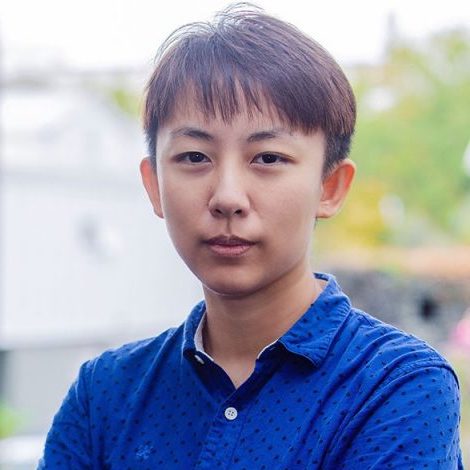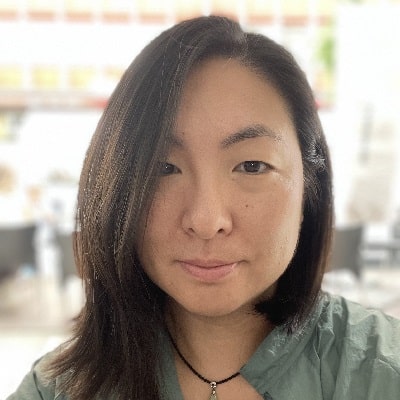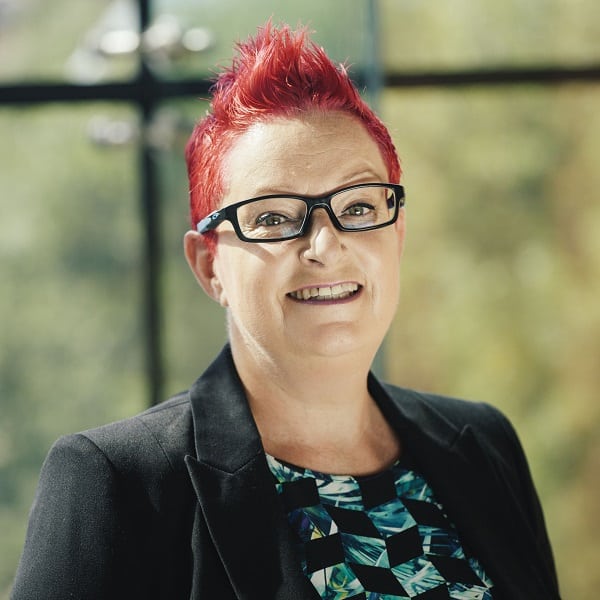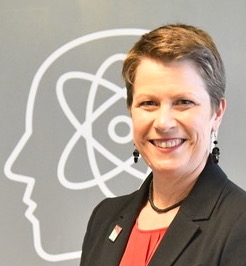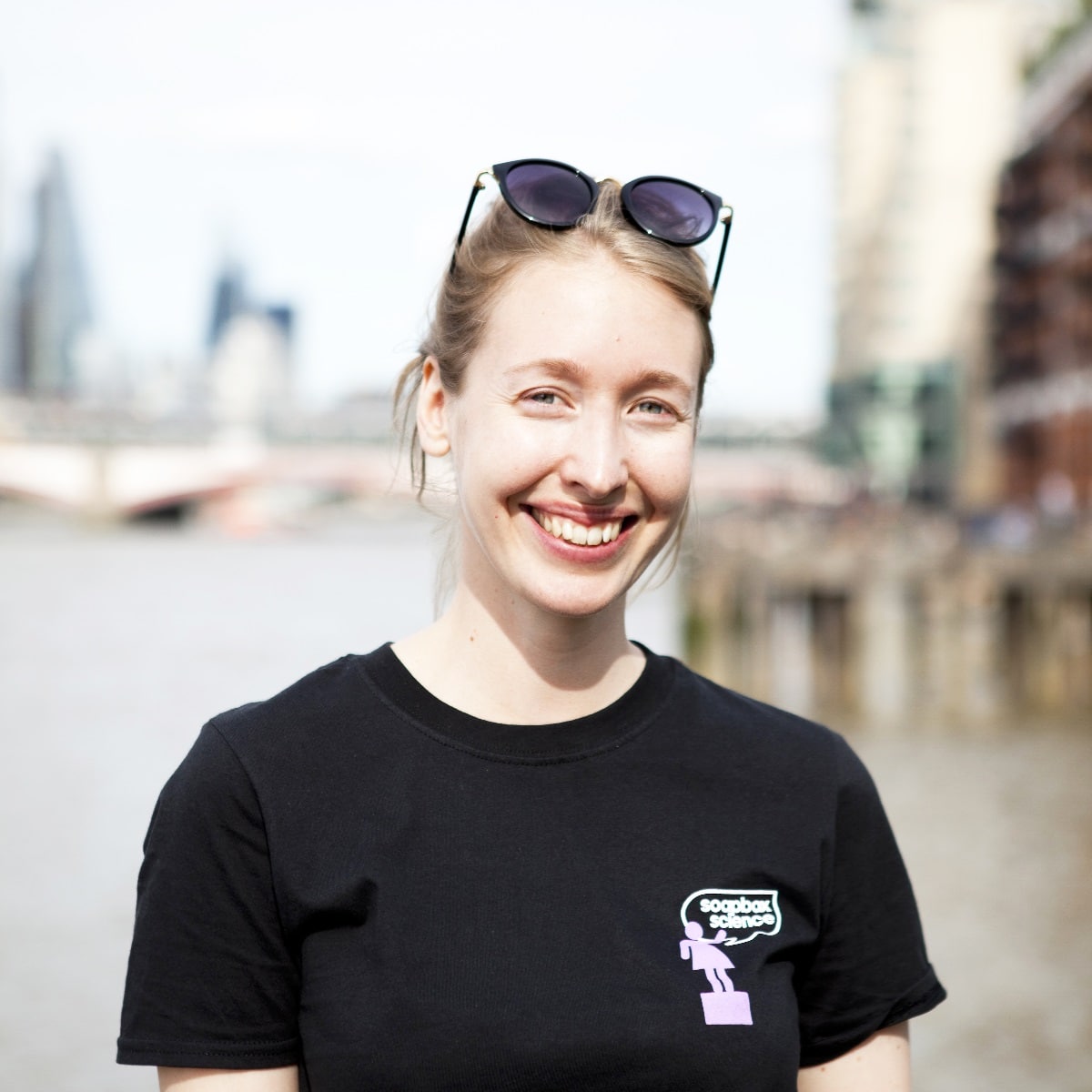On Monday 4th March 2024, we hosted the latest edition of our community engagement event #FuturePub to prompt discussions ahead of this year’s International Women’s Day. Held annually on 8th March, a version of the day has been celebrated for over a century but it wasn’t until 1975 that it was made an official day of celebration and awareness by the United Nations.
On Monday night our five amazing Lightning Talk speakers set the scene for what this means for research. From how the research profession has been shaped around persistent biases that work against 51% of the population, to why we should all care about the underrepresentation of women and other groups within research and in the topics we choose to allocate funding for, and from specific examples of what this means for all of society, to why we must have better representation within the teams that build solutions to overcome the challenges we face as a society, #FuturePub gave our audience lots to think about over the pizza, drinks, and table tennis tournaments that followed.
It feels awfully frivolous to wish anyone a “happy” International Women’s Day. That such a day needs to exist is saddening, but it is necessary. The day is a powerful reminder of the ongoing struggle for gender equality, but also an opportunity to celebrate the achievements of women across all sectors of society. For those of us working within and adjacent to research, this day holds particular significance as it provides an opportunity to acknowledge the accomplishments of women scientists, engineers, scholars, and innovators who have made valuable contributions to human knowledge and progress, and highlight their groundbreaking discoveries, innovative solutions, and significant impact in their respective fields, so it felt like the perfect theme for our first community engagement event of 2024.
Historically, women have faced numerous barriers and obstacles in pursuing careers in science, technology, engineering, and mathematics (STEM). From discriminatory hiring practices to implicit biases and systemic barriers, women have often been marginalised and underrepresented in research fields. International Women’s Day helps to raise awareness about the challenges and inequalities that women continue to face in the research profession. Despite progress in recent decades, gender disparities persist in areas such as funding, publication rates, leadership positions, and recognition for research achievements. By shining a spotlight on these issues, International Women’s Day sparks important conversations and mobilises efforts to address gender inequality and promote inclusivity in research, which our five speakers certainly did.
Subhadra Das – The History We Deserve
We kicked off the evening by hearing about some of the history that has shaped today’s research culture from Subhadra Das, a writer, historian, broadcaster and comedian who looks at the relationship between science and society. She specialises in the history and philosophy of science, particularly the history of scientific racism and eugenics. For nine years she was Curator of the Science Collections at University College London. She has written and presented podcasts and stand-up comedy shows, curated museum exhibitions, and has appeared on radio and TV. Her first book Uncivilised: Ten Lies That Made The West is out now.
Beginning her talk with a reminder of the full title of Darwin’s Origin of the Species, Subhadra told the story of some of the lesser-known characters of centuries past including Edward Drinker Cope, a nineteenth-century American scientist whose research ran the gamut from dinosaur hunting to false notions of the sex binary and what it means to be “civilised”. Cope believed that people of European ancestry were evolutionarily superior to other races. Cope’s legacy continues today, with evidence of the persistent mistreatment and dismissal of the medical symptoms of non-European people and women in particular. For example, Subhadra shared the statistic that black women and birthing people die at 3 to 4 times the rate of white people from childbirth-related causes. Subhadra’s talk, and indeed her book, are evidence-based reminders that we should be mindful of our history today and always in order to serve all of society through research, and mitigate for the biases built into the system. You can pick up a copy of Subhadra’s book here.
Even though we have come a long way since Cope’s time, gender discrimination is still rife, in research and in society. A quick look at some of the comments under Professor Dame Athene Donald’s Digital Science-sponsored Speaker Series talk on the Royal Institution’s YouTube channel shows that there is real disengagement around equity for all in research. However, we hope that, by presenting data-supported evidence of the impact that a lack of inclusion in science will have on ALL of us, we will be able to create more dialogue and discourse around the topic and generate a greater appetite for everyone to play their part to change things, one small step at a time.
Dr Hélène Draux – Digital Science – What The Decline in Women’s First Publications Means For Research
Data and the demographics of research are topics that our next speaker lives and breathes. Dr Hélène Draux is a Senior Data Scientist at Digital Science. She creates bespoke bibliometrics analyses and visualisations for clients in the research sector with data, using platforms such as Dimensions, Altmetric, Figshare, Elements, IFI Claims, and GRID, often also incorporating clients’ data and external data. Her specialties include gender analyses, geographic analyses, topic modelling, network analyses, and interactive visualisations. She has published a book chapter on Visualisation of Research Metrics, and her work was featured in Nature. During the pandemic she also published a peer reviewed article about the speed of publishing and gender differences in publication, and it is this work that Hélène built on in her Lightning Talk.
Despite past progress, including women in the US surpassing men in doctoral degree attainment, the COVID-19 pandemic has disproportionately affected women, potentially halting or reversing their academic advancements. Based on data from dimensions.ai and Gender API, Hélène explored the trend from the year 2000 onwards, and observed a significant drop in women’s first publications in recent years. Her talk highlighted the importance of recognising and addressing the systemic challenges faced by women in academia, with a call to action for institutions and funders to support and retain women in research, thus ensuring their contributions continue to enrich and diversify the field.
As Hélène discussed, we need to recruit and retain women in research because, when it comes to research, diversity is not just a buzzword but a cornerstone for progress and innovation. Historically, women and other under-represented groups have been marginalised in the research profession, leading to significant gaps in knowledge, perspectives, and solutions. Recognizing the critical importance of inclusivity in research is not merely a matter of social justice but also a fundamental necessity for advancing science and fostering a more equitable society, for everyone.
At its core, the research profession thrives on collaboration, creativity, and critical thinking. When women and other under-represented groups are excluded from this domain, we miss out on a wealth of diverse lived experiences, insights, and talents that could drive groundbreaking discoveries and transformative advancements. The inclusion of diverse voices not only enhances the quality and relevance of research, but also ensures that the solutions generated are more comprehensive, effective, realistic, and sustainable.
Professor Jennifer Rohn – UCL – Outsmarting urinary tract infection
This brings us nicely to our third talk of the evening, this time from Professor Jennifer Rohn. Jennifer is a research group leader in the Division of Medicine at University College London, and the Head of the Centre for Urological Biology. Her team studies the biology of urinary tract infections, or UTIs, and seeks to develop new cures for treatment-resistant and chronic UTIs. She works in cross-disciplinary collaborations with clinicians, engineers and materials scientists, and her research interests include cell biology, microbiology, antimicrobial resistance, immunology, tissue engineering, and the development of novel therapies and human cell-based model platforms. She is also a novelist, journalist, public speaker, science communicator and pundit.
In Jennifer’s talk we learned that UTIs affect a staggering 400 million people each year, and the gold-standard treatment, oral antibiotics, often fail. This is because the bacteria which cause UTI have clever ways of evading antibiotics, often hiding below the surface of the bladder that is treated with antibiotics. Therapy innovations in this “mostly women’s” disease space have been hampered by lack of interest, urgency and research funding. Jennifer shared her work on one possible solution to get around bacteria’s ability to hide from drug attack and the impact this work is having on 51% of the population that are more prone to developing UTIs.
Representation in the research profession is essential for addressing pressing societal challenges. Issues such as healthcare disparities, environmental degradation, and social inequality require multifaceted approaches that can only be developed through inclusive research practices. Without diverse representation, research outcomes may inadvertently perpetuate biases, deepen inequalities, and fail to address the needs of marginalised communities adequately. This is also something that must be considered when developing policy around societal groups as our next speaker demonstrated.
Joe Twyman – Deltapoll – Sex with Strangers: Why Data Context Matters
One of Britain’s best known political pollsters, Joe Twyman is Co-Founder and Director of the global public opinion consultancy Deltapoll and is a pioneer of using the internet for conducting opinion research. Previously he was a director at the founding of YouGov back in 2000, holding a variety of senior positions within that company and was responsible for building their online research operations. He also spent two and a half years in Baghdad as a director of YouGov’s Iraq operation from 2007 to 2010. He has published a number of academic research papers, worked as project director for five British Election Studies and frequently provides expert analysis for TV, radio and newspapers both at home and abroad.
Joe’s talk was all about how we must understand the context of data collection to be able to appropriately act on its results. Joe used the example of a research study from the 1970s that became a definitive work on the differences in sexual behaviour between men and women. The study was so significant it inspired a dance hit in the 1990s that made the top ten across Europe. But all was not as it seemed as the results of the study showed a huge difference in the fairly positive responses of men and the outright refusal of all women. It didn’t take much of a deep dive into the methodology for Joe to reveal to us that the study was conducted on fewer than 50 men and 50 women, at one university campus, using those three famous lines as the sum total of the entire experimental interaction, with data collected during a small time period – oh, and the study also happened to be carried out when prolific serial killer Ted Bundy was targeting women on campus. Nevertheless, this study has gone on to inform a range of policy decisions, when its results are likely to be lacking in accuracy or true representation of society more broadly.
If we neglect to prioritise diversity and inclusion in the research profession, the consequences for both science and society can be profound. Scientific progress may stagnate as innovative ideas are overlooked, and potential breakthroughs remain undiscovered. Furthermore, the lack of representation can erode public trust in science, leading to scepticism, disengagement, and missed opportunities for collaboration between researchers and the communities they serve. Ultimately, a homogenous research profession limits our collective ability to confront complex challenges and shape a more equitable future. So, at a time when we are creating so many tech tools to help achieve this goal, we need to be mindful of who is building the solutions and whose lived experiences are being represented – topics our final speaker addressed brilliantly.
Dr Kate Devlin – King’s College London – Navigating the AI ‘Sea of Dudes’
Dr Kate Devlin is Reader in AI & Society at King’s College London, and is a co-investigator on the Responsible AI UK programme – a network that conducts and funds research into AI to benefit people, communities and society and that unites the responsible AI ecosystem in the UK and beyond. She also does work on sex robots but this time she wasn’t talking about that. Instead, Kate wanted to address the gender imbalance in AI and why we need to be concerned.
In 2016, computer scientist Margaret Mitchell described AI as a “sea of dudes”. What has the discipline done in that time to improve things and make it fairer and more representative of the world? Well, somewhat frustratingly, not a lot yet. Kate’s talk focused on the lack of – and need for – women in AI. In her own words, “Yes, we know and celebrate Ada Lovelace. No, that doesn’t fix things.” Kate shared the net worth of eight of the top tech CEOs who all happened to be men, and highlighted the challenges that this poses in terms of building technological solutions that should help all of society.
Inclusive representation in the research profession is not just morally important but also strategically necessary for advancing science and addressing the complex challenges facing our world. By embracing diversity and challenging the status quo, we can unlock the full potential of research to drive positive change and create a more equitable and sustainable future for all. Through its innovative solutions and commitment to inclusivity, Digital Science is contributing to reshaping the research landscape and ensuring that everyone can be “in the room where it happens”. But we can only achieve this through engagement with stakeholders from across the research community, which is why it was great to see such broad representation from academia, industry, government, funder, and publisher at FuturePub, with conversations and competitions going on late into the night.
Once again, our friends at Bounce looked after us brilliantly, and we’d like to thank Khai, Paddy, Laura, Anna, Dave and the rest of the team for keeping the pizza cooking, the drinks flowing, and the ping pong balls flying everywhere. We were thrilled that Oxford University Press were able to donate five copies of Athene’s book to give away as prizes to the winners of the table tennis competitions that were expertly run by Bounce’s Games Gurus. Champions also walked away with a bottle of fizz.
Among our winners on the night were Michelle Boismenu from Oxford Nanopore Technologies and Sam Conneely from Mimecast, seen posing with their medals and books. Congratulations to them and our other winners, including Digital Science’s own Luke George, seen basking in the glory of his victory across a ping pong table while catching up on the latest from Athene’s book. If you didn’t make it into our top five, you can grab a copy of Athene’s book here.

You can check out the video from the night here and the photo gallery from the event here. Find out more about how we are contributing to greater equity and representation in research here, discover what else we are talking about in our TL;DR space here, and sign up to our newsletter to find out more wherever you see the big yellow button – scroll up, and you should see it on the right-hand side. You can also subscribe to the FuturePub Series on Cassyni to watch these talks and previous Lightning Talks too. In addition, friend of Digital Science and brilliant research community legend Frank Norman has also shared his thoughts on the night.
We’ve been running FuturePub for a while now, and are excited to continue our community engagement events, but audience feedback consistently reveals that the name doesn’t really convey the vibe or value of attending one of our events, and because of that we might be missing out on engaging with some parts of our industry – so, like all good researchers, we’re taking that feedback on board and shaking things up! FuturePub will be back in London in the Autumn, but with a brand new name. Do you have any suggestions as to what we can rename our informal networking nights out? Let us know using the contact form on our website! We’d love to hear from you. And if you would like to speak at a future event, fill in this short proposal form as soon as possible. It will help us spot the emerging themes and trends from the community and find the best partners to run our next event with.
Our events wouldn’t be what they are without our amazing audience, so thank you for joining us at FuturePub! Thanks also to our Digital Science helpers, Bex, Antonio and James. We’d also like to thank the team at Bounce once more. Huge thanks to Vinny Whiteman and Issy Oakes for their videography and photography skills, and thanks to Huw James from Science StoryLab who will be working his magic to bring us another highlights video of the night – watch this space! See you in the Autumn.

